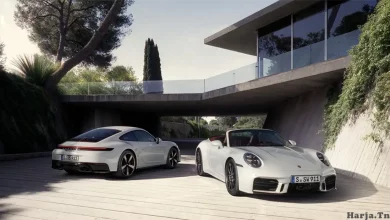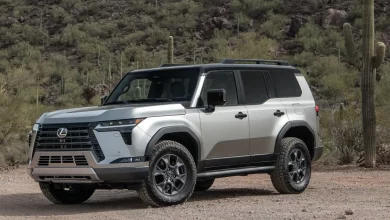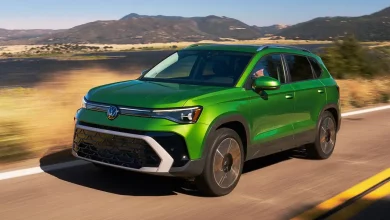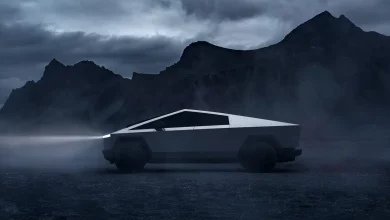The Fastest Chevy Camaros We’ve Ever Tested: From Stock to Modified
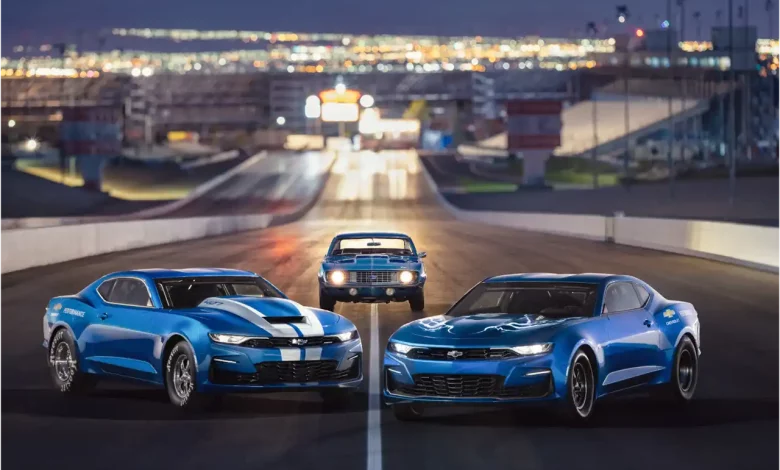
Ranking six generations of Chevy Camaros by how fast they’ve run down the dragstrip.
The terms “quarter mile” and “muscle car” have been intertwined for decades, with multiple automakers producing numerous cars capable of thundering down a dragstrip. Since 1967, for example, we’ve seen six generations of the Chevy Camaros pitted against the likes of Mustangs, GTOs, Hellcats, Firebirds, and more. But rarely do we ask which Chevy Camaro, regardless of generation, is the fastest of them all—at least until now. The following is a ranked list of the merely fast in the quarter mile to the quickest and fastest Camaros MotorTrend has had the good fortune to put through the performance test ringer, from stock production to heavily modified models.
1967 Chevrolet Camaro SS 396 (Gen 1) | 14.5-Second ¼ Mile
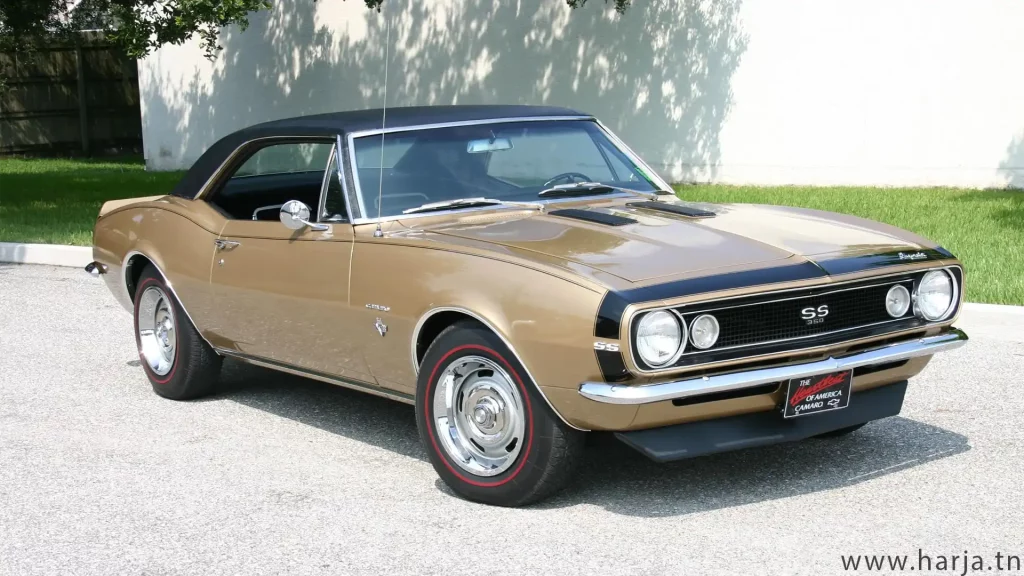
When Chevrolet released the Camaro more than two years after the Ford Mustang, it ignited the pony car car craze that rivaled Beatlemania. For only $263.30, the L35 Super Sport package was one of the top performance option groups available for the gen-one Camaro. Although the Fab Four declared that money can’t buy you love, a 396-cubic-inch big-block V-8 making 325 hp and 410 lb-ft of torque made a strong argument to the contrary.
That power allowed the SS to run from 0 to 60 mph in 6.0 seconds flat and through the quarter mile in 14.5 seconds at 95.0 mph. Whether they realized it or not, with the advent of the Chevy Camaros, Chevy started down a long and winding road of direct competition with the Ford Mustang that lasts to this day. That street fight would go on to divide the automotive public like Yoko Ono, from Woodward Avenue to Abbey Road and beyond.
| 1967 Chevrolet Camaro SS 396 (L35) | |
| 0-60 MPH | 6.0 sec |
| Quarter Mile | 14.5 sec @ 95.0 mph |
| Top Speed | 140 mph |
| Engine | 6.5L N/A V-8 |
| Horsepower | 325 hp |
| Torque | 410 lb-ft |
| Transmission | 4-speed manual |
| Curb Weight | 3,300 lb |
1971 Chevrolet Camaro Z/28 (Gen 2) | 14.5-Second ¼ Mile
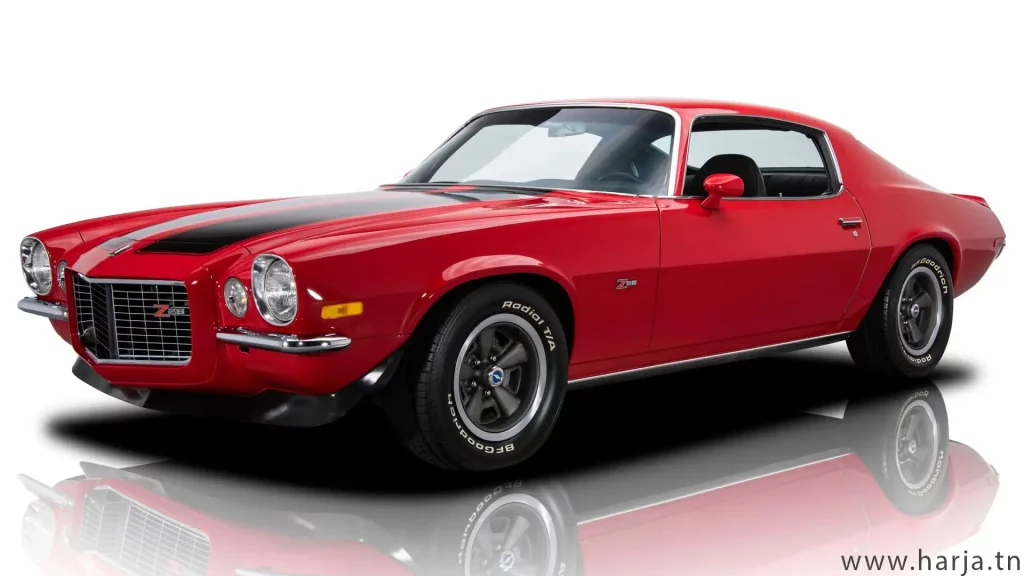
The second-generation Camaro began in 1970, and a year later, we tested the LT-1-powered Camaro . Although its new body gave the impression the sleek speedster came to rumble, its timing couldn’t have been worse. Stricter emissions standards and an emerging gas crisis combined forces like the Legion of Doom to put horsepower (and performance) in a two-decade-long headlock.
1971 also marked the beginning of the SAE’s new net horsepower mandate, which meant manufacturers began to measure horsepower at the flywheel of each car, before any drivetrain losses . Confusingly, Chevy released both the gross and net power numbers for the Z28, meaning that it either made 330 hp and 360 lb-ft (gross) or 275 hp and 300 lb-ft of torque (net), depending on which numbers you were looking at.
Shooting from 0 to 60 mph took the Camaro Z28 just 7.2 seconds, and it drop-kicked the quarter mile in 14.5 seconds at 93.0 mph. The 1971 Camaro Z28 may not win many title belts compared to today’s superstars, but it was one of the fastest Camaros of the 1970s.
| 1971 Chevrolet Camaro Z28 (LT-1) | |
| 0-60 MPH (SEC) | 7.2 sec |
| Quarter Mile | 14.5 sec @ 93.0 mph |
| Top Speed(MPH) | 120 mph |
| Engine | 5.7L N/A V-8 |
| Horsepower | 330 gross hp (275 net) |
| Torque | 360 gross lb-ft (300 net) |
| Transmission | 4-speed manual |
| Curb Weight | 3,310 lb |
1990 Chevrolet Camaro IROC-Z (Gen 3) | 14.4-Second ¼ Mile
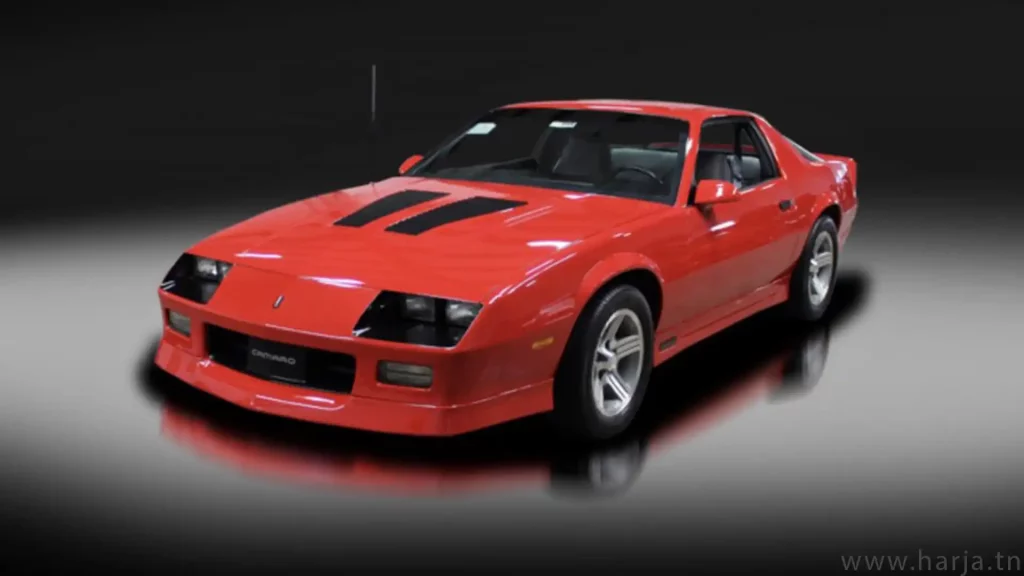
Although the 1980s were a great decade for music, when it came to automotive performance, it was nothing but unrequited love ballads reminiscing about the good ol’ days when horsepower mattered above all and a gas crisis meant rushing to the restroom. But when the 1LE package debuted for the third-gen Camaro, Chevy began to change its tune. Unlike its most famous failure, the Pontiac Fiero , GM gave the Camaro a reasonably powerful 5.7-liter L98 V-8 that made 245 hp and 345 lb-ft of torque. That power, funneled through a four-speed automatic, helped the headlining IROC-Z rock from 0 to 60 mph in 5.8 seconds and roll through the quarter mile in an impressive (for the era) 14.4 seconds at 97.8 mph.
| 1990 Chevrolet Camaro IROC-Z (1LE) | |
| 0-60 MPH | 5.8 sec |
| Quarter Mile | 14.4 sec @ 97.8 mph |
| Top Speed (MPH) | 146 mph |
| Engine | 5.7L N/A V-8 |
| Horsepower | 245 hp |
| Torque | 345 lb-ft |
| Transmission | 4-speed auto |
| Curb Weight | 3,626 lb |
1998 Chevrolet Camaro Z28 (Gen 4) | 13.6-Second ¼ Mile
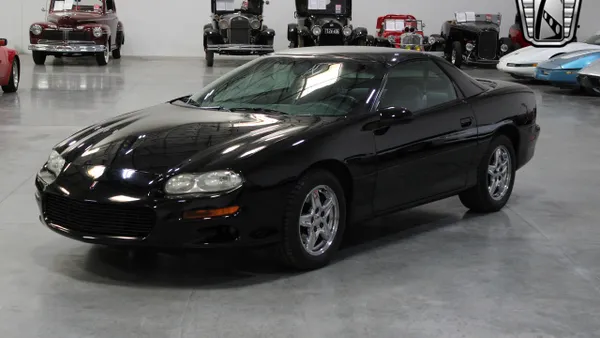
Thanks to a surging stock market, a booming economy, and the steady rise of the internet, the 1990s is widely regarded as a decade of prosperity. In 1998, Chevy joined the party with an all-new aluminum block and set of heads for its 5.7-liter LS1 V-8 under the hood of the Camaro, replacing the heavier iron-block LT1. Debuting in 1993 and not doing its last call until 2002, the fourth-gen Camaro Z28 offered top shelf performance at a happy hour price. The ’98 version of the Z28 ripped from 0 to 60 mph in 5.2 seconds, while the quarter mile shot by in 13.6 seconds at 106.5 mph. Despite its polarizing midcycle face-lift, with a base price of less than $25,000, the fourth-gen Camaro was an absolute sports car bargain.
| 1998 Chevrolet Camaro SS Z28 | |
| 0-60 MPH | 5.2 sec |
| Quater Mile | 13.6 sec @ 106.5 |
| Top Speed | 160 mph |
| Engine | 5.7L N/A V-8 |
| Horsepower | 305 hp |
| Torque | 335 lb-ft |
| Transmission | 6-speed manual |
| Curb Weight | 3,350 lb |
2010 Chevrolet Camaro SS (Gen 5) | 13.0-Second ¼ Mile
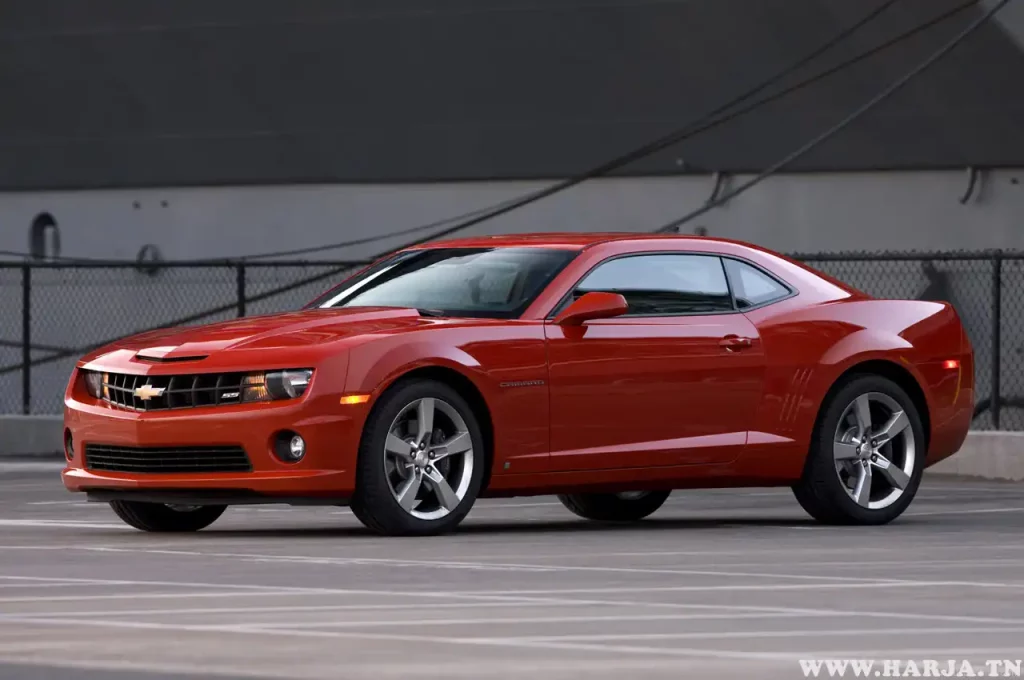
By 2010, the global economy and the Camaro faithful had been in a depression for several years. But after being delisted from Chevy’s lineup for nearly a decade, the Camaro charged back with the fervor of an over-caffeinated stockbroker. The fifth-gen Camaro had a new retro look and a powerful 6.2-liter LS3 V-8 producing 426 hp and 420 lb-ft of torque. Despite weighing in at a bearish 3,859 pounds, the new Super Sport Camaro still paid dividends with a 0‒60 time of just 4.7 seconds and a quarter-mile pass of 13.0 seconds flat at 111 mph.
| 2010 Chevrolet Camaro SS | |
| 0-60 MPH | 4.7 sec |
| Quarter Mile | 13.0 sec @ 111 mph |
| Top Speed | 155 mph (electronically limited) |
| Engine | 6.2L N/A V-8 |
| Horsepower | 426 hp |
| Torque | 420 lb-ft |
| Transmission | 6-speed manual |
| Curb Weight | 3,859 lb |
2019 Chevrolet Camaro SS (Gen 6) | 12.4-Second ¼ Mile
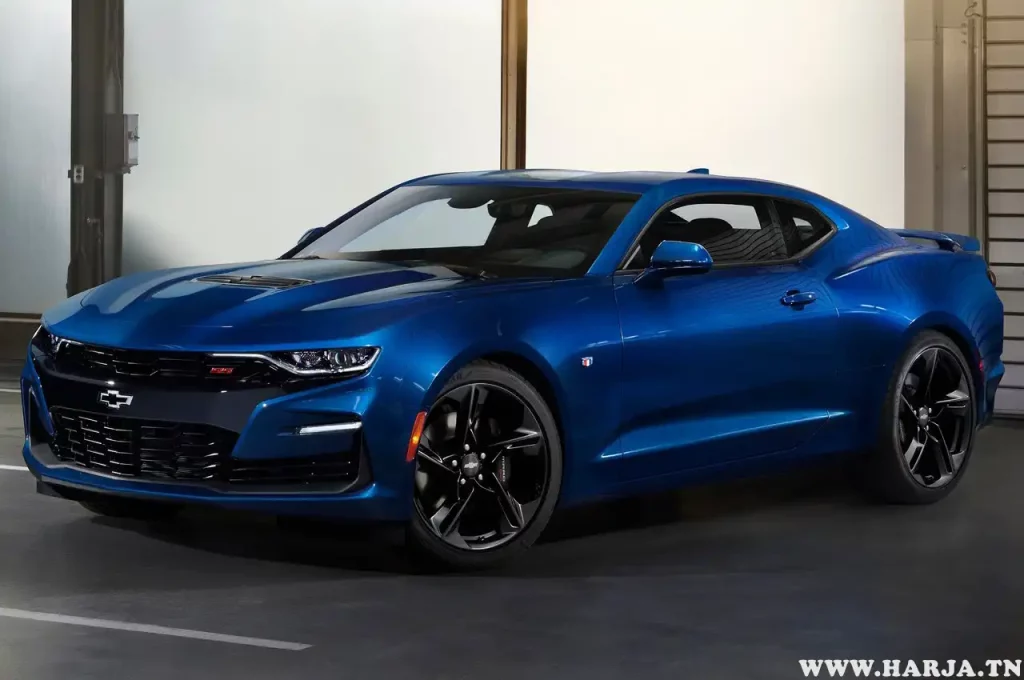
While “10-speed” is usually reserved for road bikes, the 2019 Camaro SS trekked into unfamiliar territory when it offered up its first double-digit geared automatic transmission . With 455 hp and 455 lb-ft of torque pumping out of its 6.2-liter naturally aspirated LT1 V-8, the 2019 Camaro SS attacked the pavement like a juiced-up Lance Armstrong. The sixth-gen SS was a tour de force capable of sprinting from 0 to 60 in as little as 4.1 seconds and clocking the quarter mile in 12.4 seconds at 115.8 mph.
| 2019 Chevrolet Camaro SS Coupe (2SS) | |
| 0-60 MPH | 4.1 sec |
| Quarter Mile | 12.4 @ 115.8 mph |
| Top Speed | 165 mph |
| Engine | 6.2L N/A V-8 |
| Horsepower | 455 hp |
| Torque | 455 lb-ft |
| Transmission | 10-speed auto |
| Curb Weight | 3,739 lb |
2015 Chevrolet Camaro Z/28 (Gen 5) | 12.3-Second ¼ Mile
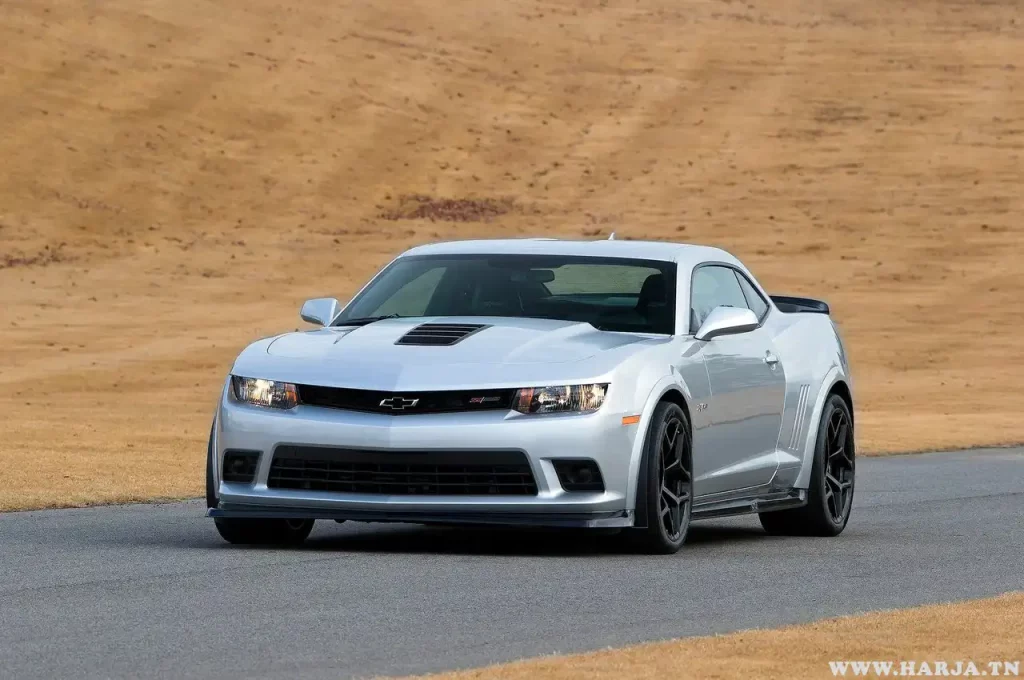
The Z/28 badge has always been about creating a well-rounded athlete of a car more so than just another dragstrip speedster. The big 7.0-liter LS7 V8, with its 505 hp and 481 lb-ft of torque, helped the Z muscle from 0 to 60 mph in an Olympic 4.0 seconds and hurdled the quarter mile in a blistering 12.3 seconds at 116.1 mph. Turning, stopping, and sprinting all combine to make up the automotive version of a triathlon, and the 2015 Z/28 had the power to medal in all three events. In fact, the Z/28 won the gold in our Best Driver’s Car for 2014 , proving it can be a champion no matter what the event.
| 2015 Chevrolet Camaro Z/28 | |
| 0-60 MPH | 4.0 sec |
| Quarter Mile | 12.3 sec @ 116.1 mph |
| Top Speed | 175 mph |
| Engine | 7.0L N/A V-8 |
| Horsepower | 505 hp |
| Torque | 481 lb-ft |
| Transmission | 6-speed manual |
| Curb Weight | 3,882 lb |
2012 Chevrolet Camaro ZL1 (Gen 5) | 12.1-Second ¼ Mile
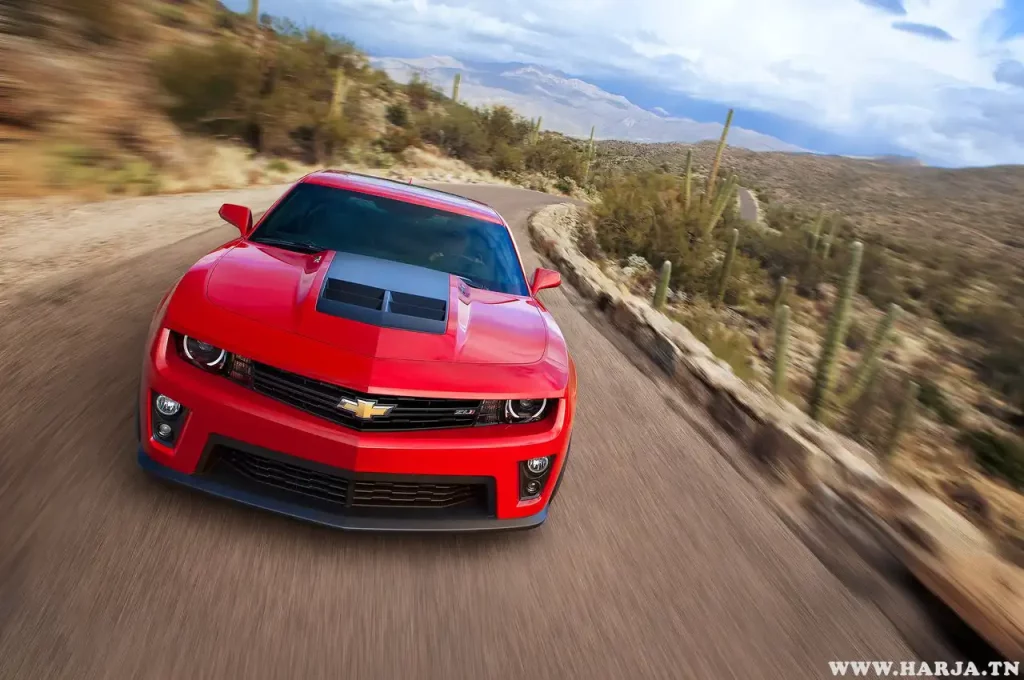
Last seen the same year as the moon landing, the 2012 ZL1 made its first triumphant return to the world since 1969 . Unlike its naturally aspirated predecessor, the modern ZL1 reached a nigh-hypersonic top speed of 184 mph. That speed came thanks to a blown 6.2-liter LSA V-8 borrowed from the Cadillac CTS-V, which made an astronomical 580 hp and 556 lb-ft of torque. The top-flight Camaro launched from 0 to 60 in just 3.8 seconds and through a quarter mile of atmosphere in 12.1 seconds at 117.4 mph.
| 2012 Chevrolet Camaro ZL1 | |
| 0-60 MPH | 3.8 sec |
| Quarter Mile | 12.1 sec @ 117.4 mph |
| Top Speed | 184 mph |
| Engine | 6.2L supercharged V-8 |
| Horsepower | 580 hp |
| Torque | 556 lb-ft |
| Transmission | 6-speed manual |
| Curb Weight | 4,094 lb |
2017 Chevrolet Camaro ZL1 (Gen 6) | 11.5-Second ¼ Mile
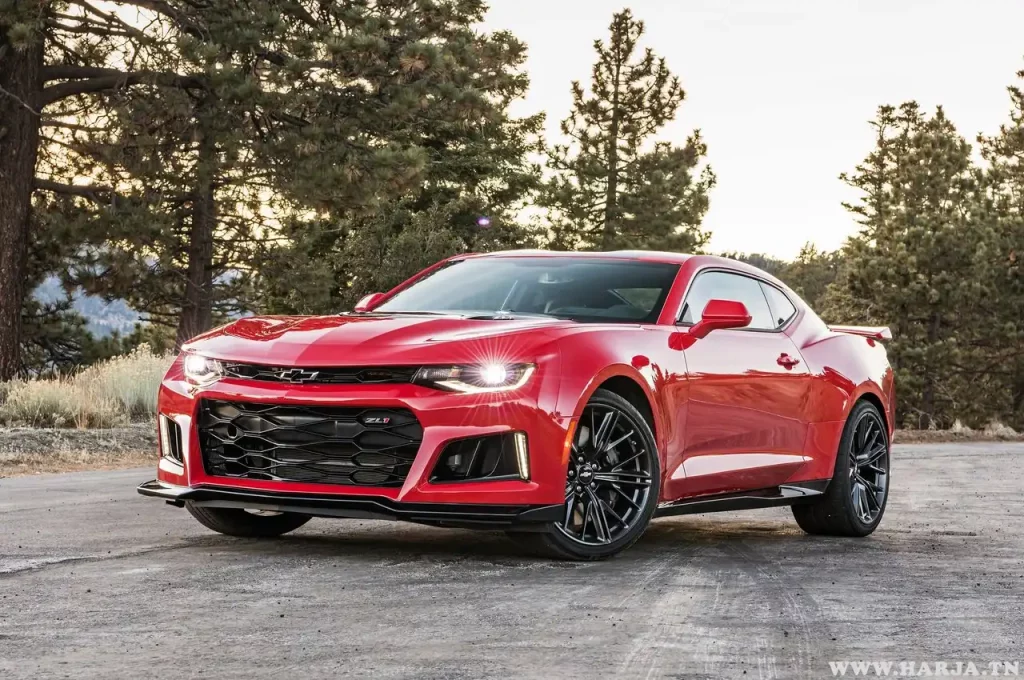
Unquestionably the king of the Camaros, the sixth-gen ZL1 reigns supreme as the god of Chevy’s mythic model. With its 6.2-liter supercharged LT4 V-8 under the hood, the mighty Chevy Camaros uses all 650 hp and matching 650 lb-ft of torque to smite Mustangs and overthrow unsuspecting Corvettes. The current and final (for now) ZL1 can flash from 0 to 60 in a lightning-quick 3.5 seconds and conquer the quarter mile in an epic 11.5 seconds at 125 mph. Combined with a top speed of 198 mph, the sixth-gen ZL1 sits on the throne as the quickest and fastest production Camaro model we have ever tested.
| 2017 Chevrolet Camaro ZL1 | |
| 0-60 | 3.5 sec |
| Quarter Mile | 11.5 @ 125 mph |
| Top Speed | 198 mph |
| Engine | 6.2L supercharged V-8 |
| Horsepower | 650 hp |
| Torque | 650 lb-ft |
| Transmission | 10-speed auto |
| Curb Weight | 3,926 lb |
What is the Fastest Modified Camaro?
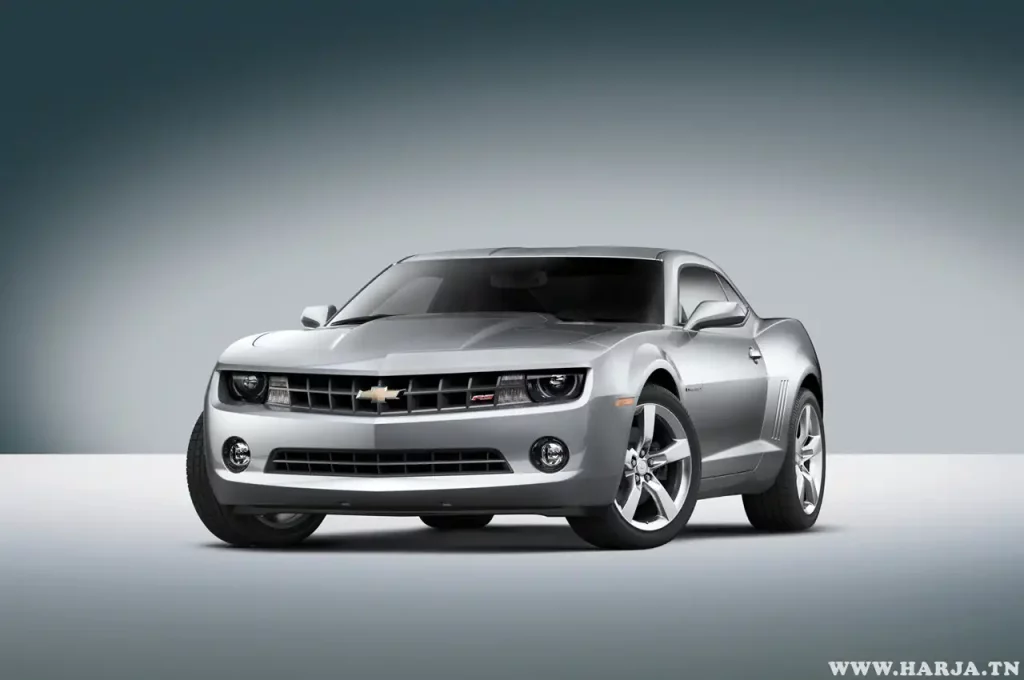
It’s clear from the numbers that the sixth-generation ZL1 reigns supreme as the fastest production model in our record books, but we thought it would be fun to look back at some of the fastest modified Chevy Camaros we had the opportunity to drive, as well. Of course, this list can’t encompass every modded Camaro that has ever run at a test-and-tune night, but the following are five of our most memorable monster-motor models.
1997 Chevrolet 510 Camaro | 12.8-Second ¼ Mile
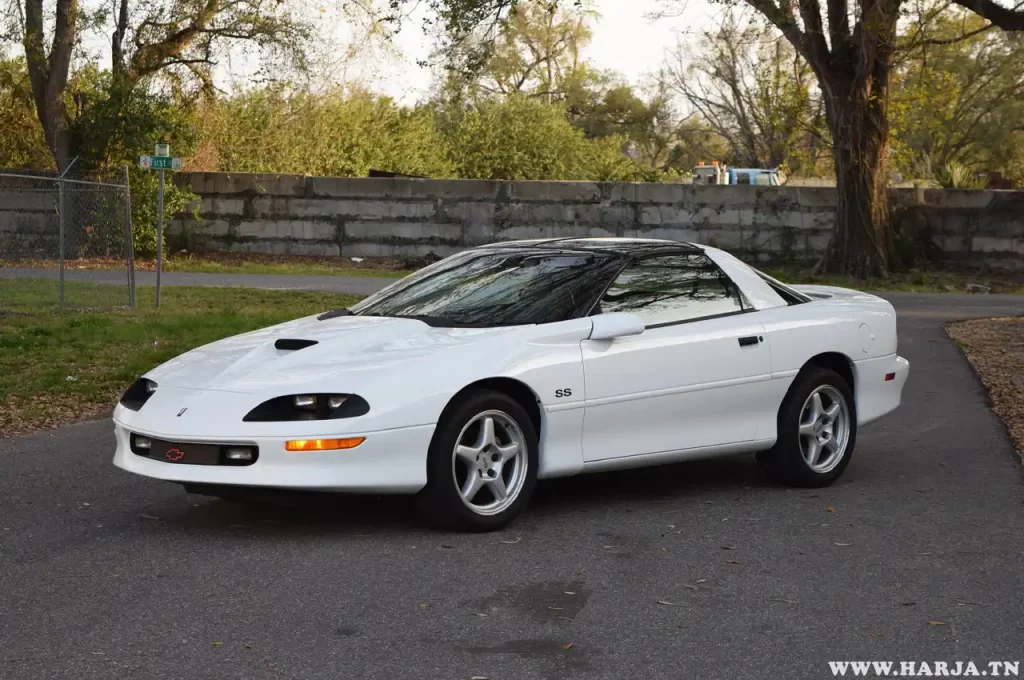
In 1997, the manager of Chevrolet Specialty Vehicles, Jon Moss, got a little nostalgic and decided to revive the early 1970s when he created the incredible 510 Camaro . No, thankfully, not with a shag carpet interior, but with a car he created using components found in GM’s Performance Parts catalog . The centerpiece is a groovy big-block engine stuffed between the front fenders of a non-ZL1 Camaro for the first time since 1972. As evidenced by its name, this Camaro was driven by more than flower power, thanks to its built 510-cubic-inch engine that made a far-out 600 hp and 556 lb-ft of torque. That power got channeled through a 4L80-ER four-speed automatic transmission and then on to radial 315/35 ZR-17 BF Goodrich rubber. Stomp on the throttle with your platform shoes, and the 510 Chevy Camaros will boogie to 60 mph in 4.6 seconds. Keep on it, and the quarter mile would snap by in 12.8 seconds at 113.3 mph, making this old-school hot rod inspired by the ’70s off-the-hook fast for the late 1990s.
| 1997 Chevrolet 510 Camaro | |
| 0-60 MPH | 4.6 sec |
| Quarter Mile | 12.8 sec @ 113.3 mph |
| Engine | 8.4L N/A V-8 |
| Horsepower | 600 hp |
| Torque | 556 lb-ft |
| Transmission/td> | 4-speed auto |
| Curb Weight | 3,500 lb (est) |
1996 Chevy Camaros (ZL-1 Toy Box) | 12.5-Second ¼ Mile
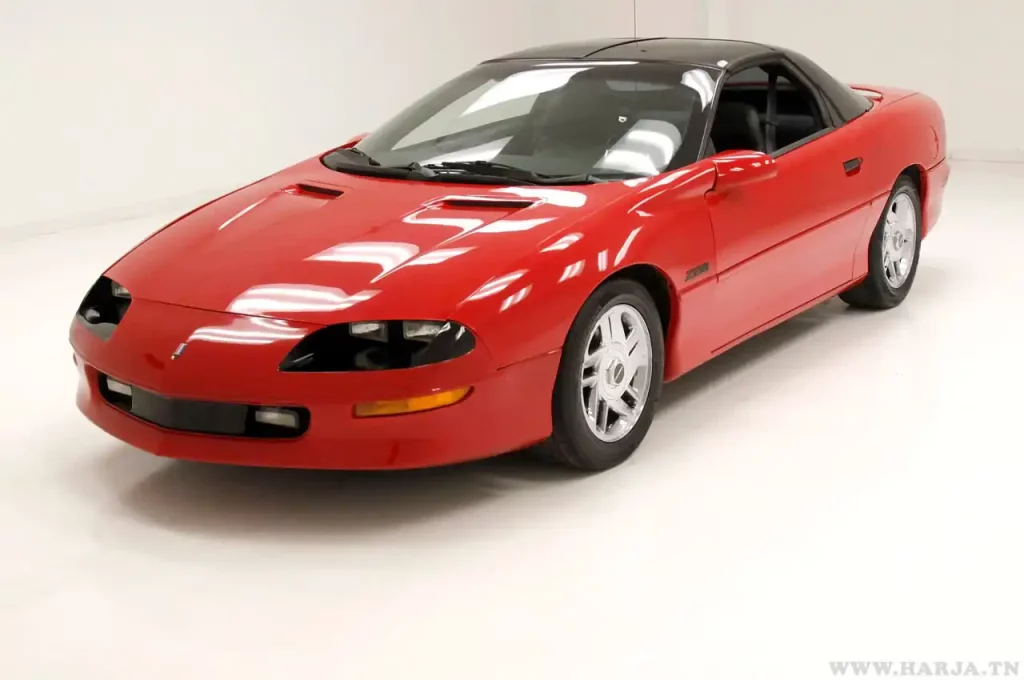
Another incredible one-off championed by Chevy Special Vehicles manager Jon Moss , the 1996 ZL-1 Toy Box edition was a Chevy Camaros that was more juiced up than a pro bodybuilder. With a swole 9.4-liter (572-cubic-inch) V-8 under the hood making a massive 725 hp and 710 lb-ft of torque , it wouldn’t have been surprising if this ZL-1 ran on whey protein and 104-octane testosterone. From the engine, that power pumped through a standard five-speed manual transmission and on to a 4.11:1 axle, which allowed the Z to push from 0 to 60 in just 4.4 seconds while maxing out the quarter mile in 12.5 traction-challenged seconds at 127.7 mph.
| 1996 Chevrolet Camaro (ZL-1 Toy Box) | |
| 0-60 MPH | 4.4 sec |
| Quarter Mile | 12.5 sec @ 127.7 mph |
| Engine | 9.4L N/A V-8 |
| Horsepower | 725 hp |
| Torque | 710 lb-ft |
| Transmission | 5-speed manual |
| Curb Weight | 3,600 lb (est) |
2010 Chevrolet Camaro Hurst | 12.3-Second ¼ Mile
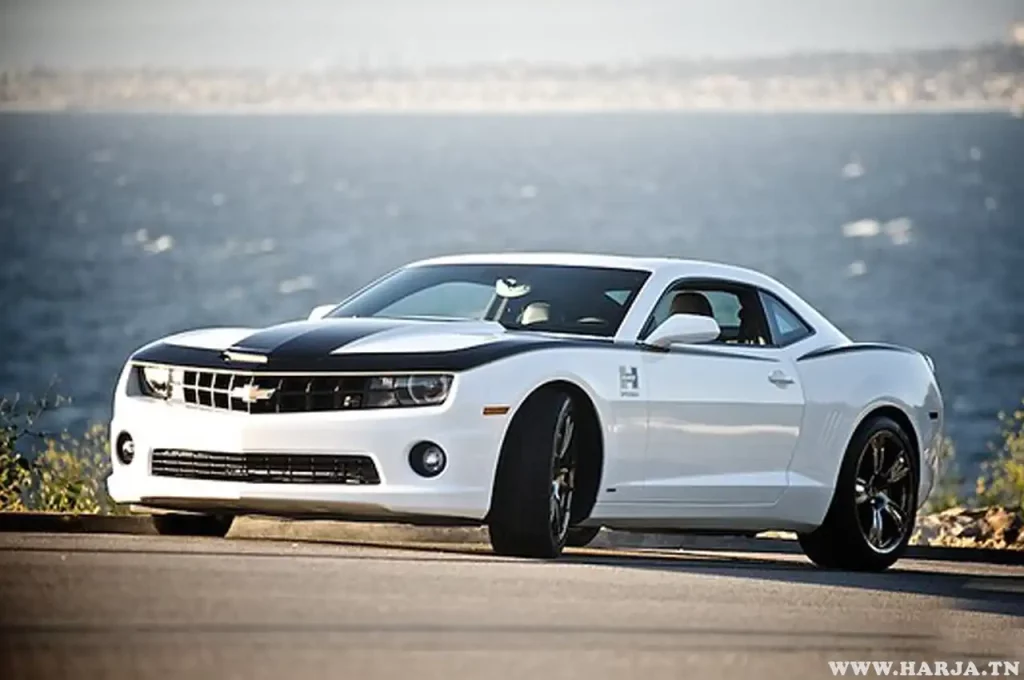
Much like discovering that Starbucks offers good food on top of the coffee it’s known for, it may be a surprise that Hurst makes more than just shifters. George Hurst and his company, Hurst Performance Vehicles, have been making special-edition cars since 1968, and this gen-five was one of their best. With power coming from a 6.2-liter Magnuson supercharged LS3 V-8, the 2010 Hurst/Camaro Performance Series 4 Supercharged kicked with a 600 hp double shot of espresso.
That power was funneled through a six-speed manual (using a Hurst shifter, of course) and then on to a set of Michelin tires that could be roasted into a dark blend of rubber and smoke with just a light dab of the throttle. Stir that Hurst Hard-Drive shifter well enough, and watch the Performance Series 4 SC Camaro rip from 0 to 60 mph in a steaming 4.1 seconds. Keep pressing, and the quarter mile whipped by in just 12.3 seconds at 116.7 mph.
| 2010 Chevrolet Camaro Hurst | |
| 0-60 MPH | 4.1 sec |
| Quarter Mile | 12.3 sec @ 116.7 mph |
| Engine | 6.2L supercharged V-8 |
| Horsepower | 600 hp |
| Torque | 550 lb-ft |
| TRANSMISSION | 6-speed manual |
| CURB WEIGHT | 4,033 lb |
2010 Chevrolet Camaro HPE550 | 11.9-Second ¼ Mile
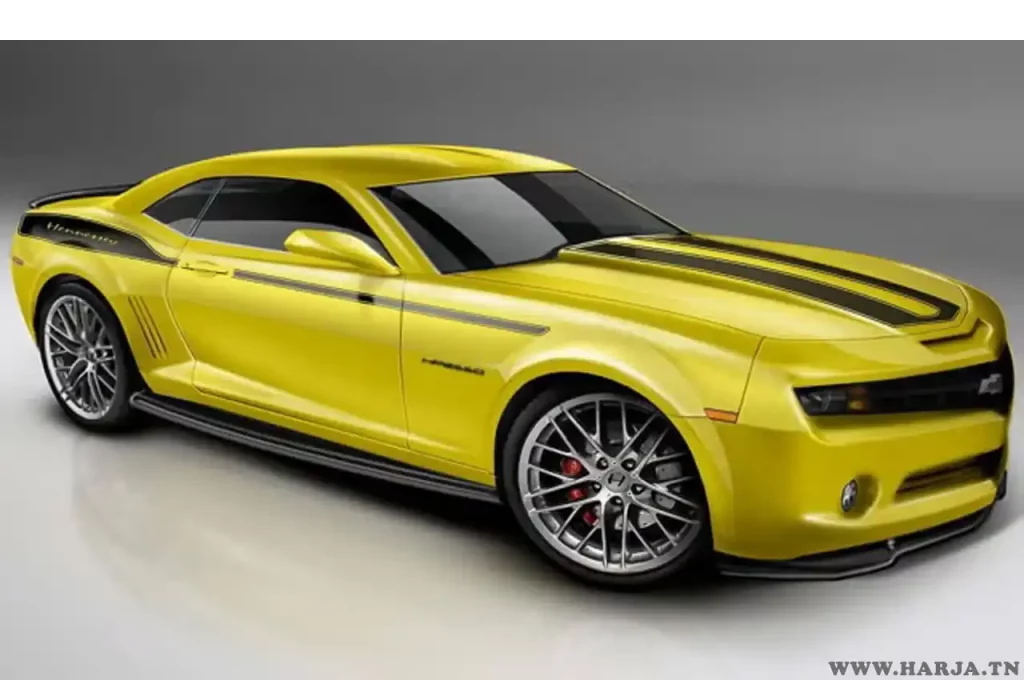
Hennessey Performance Engineering (HPE) is best known for making savagely fast Dodge Vipers even faster. But when HPE slithered over to GM and hatched the HPE550 , it created one of the most dangerous predators on the planet … at least to Shelby and SRT8 owners . Using a Roots-type supercharger bolted to an already potent LS3 motor, HPE lured its prey with an advertised and incredibly underrated 562 hp and 527 lb-ft of torque. After a dyno test, the actual numbers were more like 615 and 593, respectively, which helps to explain the vicious 3.7-second assault to 60 mph. Dance with this snake a little longer, and it would attack the quarter mile in 11.9 seconds at 121.6, making the HPE550 one of the most strikingly fast Chevy Camaros in our record books.
| 2010 Chevrolet Camaro HPE550 | |
| 0-60 MPH | 3.7 sec |
| Quarter | 11.9 sec @ 121.6 mph |
| Engine | 6.0L supercharged V-8 |
| Horsepower | 615 hp |
| Torque | 593 lb-ft |
| Transmission | 6-speed manual |
| Curb Weight | 3,931 lb |
1998 Chevrolet Camaro (LS1 Chevy Toy Box Drag Car) | 10.2-Second ¼ Mile
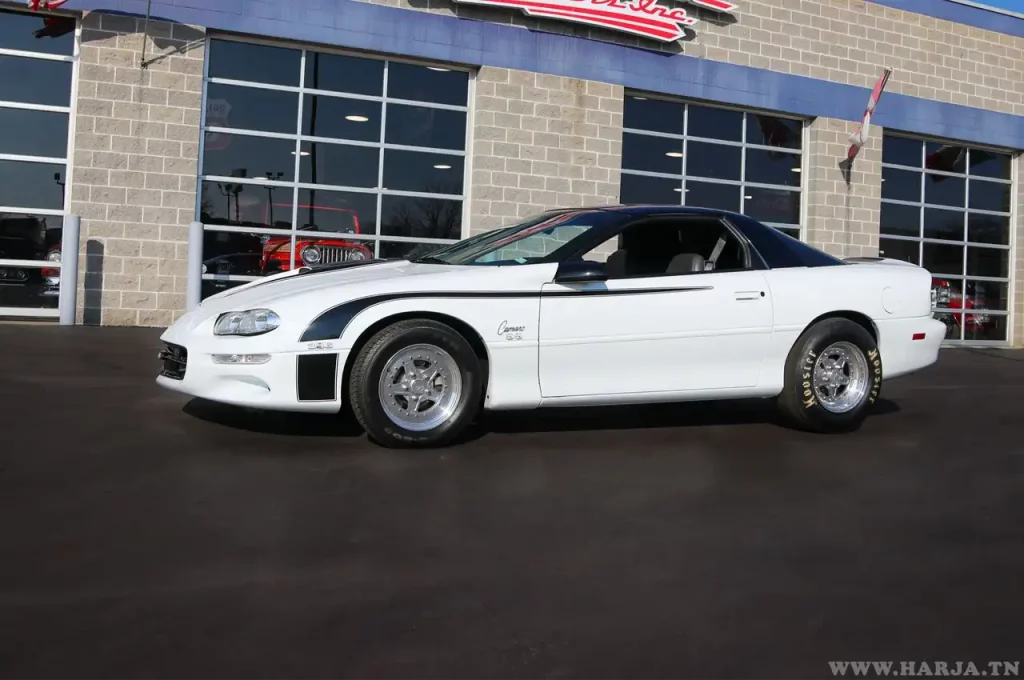
If Chevrolet built Mike Tyson in his prime, he would look and act a lot like the 1998 LS1 Toy Box Drag Car . This Jon Moss-created NHRA-level fighter wears the championship belt in our record books, beating down all challengers in Chevy Camaros history. Although coming to the ring with only 530 hp and 485 lb-ft of torque out of its 6.6-liter naturally aspirated V-8, having a purpose-built chassis and only 2,832 pounds to move made this car ironically anything but a heavyweight. A three-speed Turbo 350 automatic pushed power to a set of 5.13:1 rear gears and then on to a pair of Mickey Thompson E/T slicks that waited to pound the pavement into submission. Even in a title fight, the 0‒60 show was over in 2.3 seconds. Last a few more rounds, and witness the quarter mile flash by after a full 10.2-second count at 133.3 mph. Ring the bell, because the 1998 LS1 Chevy Toy Box Drag Car is the fastest Camaro we’ve ever tested and the undisputed champion of our modified list.
| 1998 Chevrolet Camaro (LS1 Chevy Toy Box Drag Car) | |
| 0-60 MPH | 2.3 sec |
| Quarter Mile | 10.2 sec @ 133.3 mph |
| Engine | 6.6L supercharged V-8 |
| Horsepower | 530 hp |
| Torque | 485 lb-ft |
| Transmission | 3-speed auto |
| Curb Weight | 2,832 lb |
Camaro with the Highest Top Speed
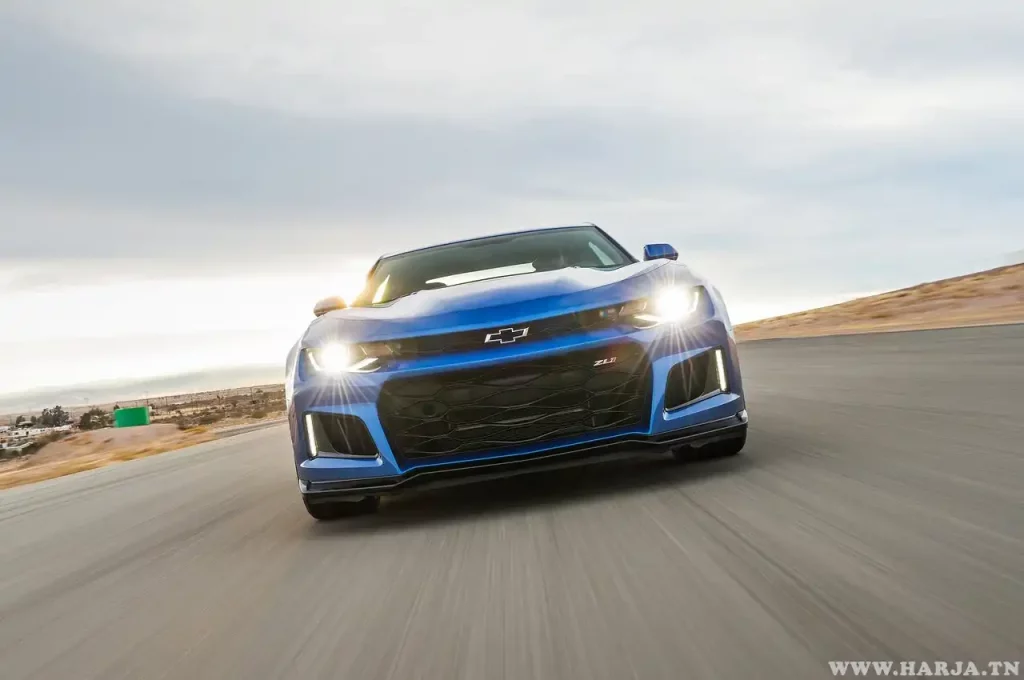
When deciding which Camaro is the fastest, start at the end of the alphabet and work backward. The two Camaros with the highest top speed we have ever seen begin with a Z. When the first production ZL1 stormed back onto the scene in 2012 with a 184 mph top speed resulting from its 580-hp supercharged LSA V-8, it took the title of “fastest Camaro” and kept it for half a decade. But the show was over when we found the 2017 sixth-gen Chevy Camaros ZL1 capable of a 198-mph top speed. With the end of its lineage looming, the latest and greatest sixth-generation ZL1 is now, and possibly forever, the fastest gas-powered production model Camaro in history.
Camaro With the Best 0‒60 MPH
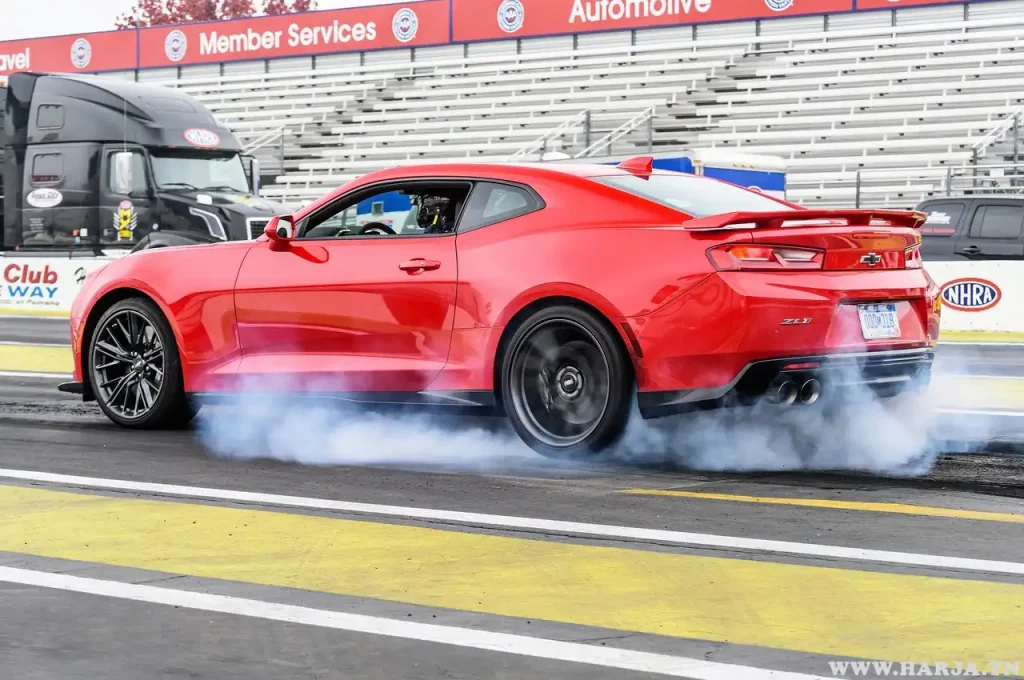
If we’re talking about production cars, the 650 hp 2017 ZL1 wins the crown of quickest production Camaro model in history with a blistering 0‒60 run of just 3.5 seconds. If modified cars are more your speed, Jon Moss’ 1998 LS1 Chevy Camaros Toy Box Drag Car is easily the quickest Camaro from 0 to 60 in our books. With properly warmed-up slicks, the Toy Box Drag Car uses all 530 hp from its 6.6-liter V-8 to rocket from 0 to 60 mph in an organ-flattening 2.3 seconds.
What Is the Highest-Horsepower Production Camaro?
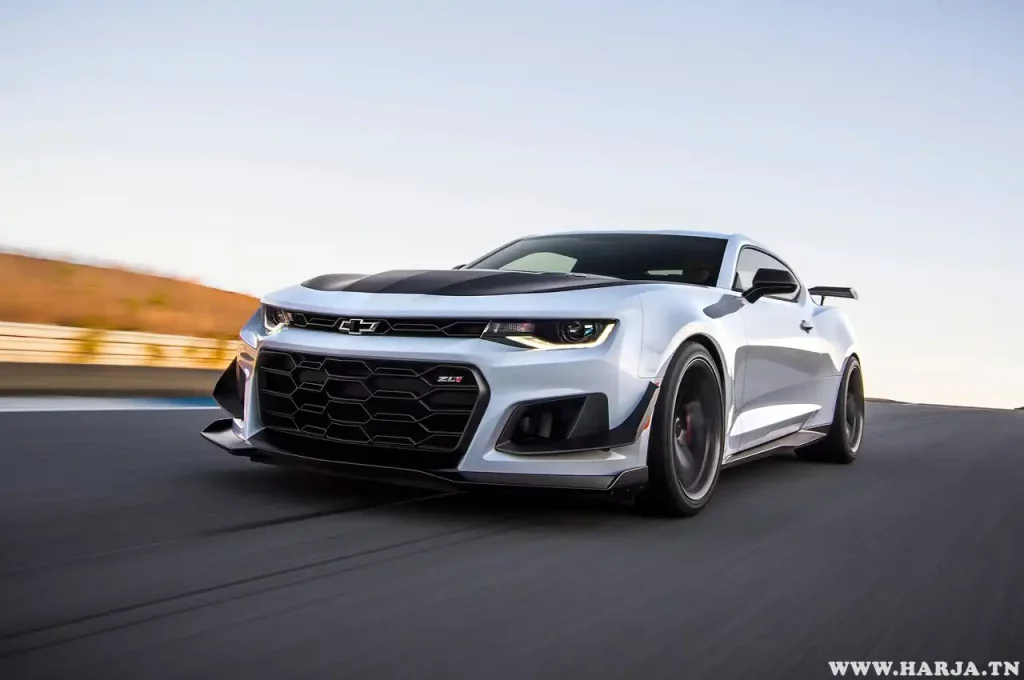
Regarding production cars, the 2017 ZL1 takes the gold and wins the triple crown of speed and power events for all things Camaro. Thanks to its supercharged LT4 V-8 engine borrowed from big brother Corvette, the sixth-generation Camaro ZL1 shrieks and surges with a ridiculous 650 horsepower and matching 650 lb-ft of torque. That power helps the newest ZL1 eclipse the second-place fifth-gen car by a full 70 ponies, making it the highest-horsepower production Camaro of all time.
What is Faster: ZL1 or Hellcat?
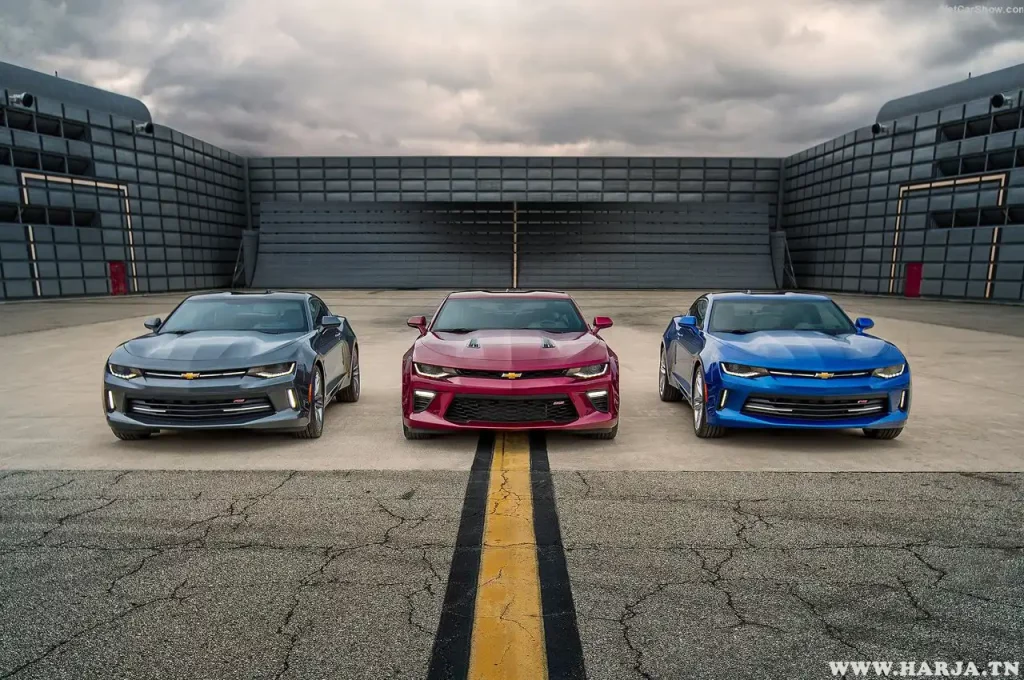
As with almost any “which is faster” questions, the answer is never as clear-cut as either side’s fans would like, and the stat sheets read like a game of ping-pong. The 2018 Dodge Challenger SRT Hellcat Widebody makes 707 hp and 650 lb-ft of torque from its 6.2-liter supercharged V-8, while the latest ZL1 also uses a 6.2-liter supercharged V-8 to make a lesser 650 hp and equal 650 lb-ft of torque. But the ZL1 checks in nearly 600 pounds lighter than the big cat, giving it a power-to-weight ratio of 6.04 pounds per horsepower, while the heavier Hellcat must move 6.35 pounds for each of its ponies. The Hellcat runs 0‒60 in 3.4 seconds, while the ZL1 takes 3.5. But the Chevy Camaros has a 198-mph top speed, while the ‘Cat taps out at 195. So on paper, it depends which number or numbers you choose to focus on, but in the real world, the truth is these cars are so close in power and performance that it will ultimately come down to which car has the better “driver mod.”
Fastest Camaros We’ve Ever Tested – Production and Modified
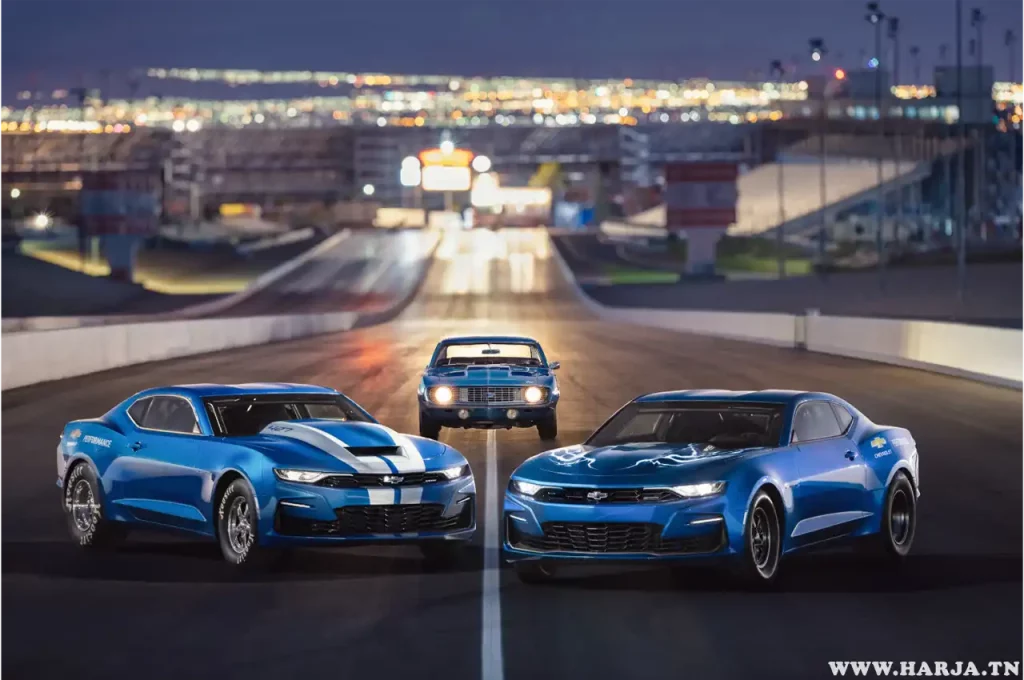
Fastest Production Camarosin the ¼ mile
1967 Chevrolet Camaro SS 396 (Gen 1) | 14.5-Second ¼ Mile
1971 Chevrolet Camaro Z28 (Gen 2) | 14.5-Second ¼ Mile
1990 Chevrolet Camaro IROC-Z (Gen 3) | 14.4-Second ¼ Mile
1998 Chevrolet Camaro SS Z28 (Gen 4) | 13.6-Second ¼ Mile
2010 Chevrolet Camaro SS (Gen 5) | 13.0-Second ¼ Mile
2019 Chevrolet Camaro SS (Gen 6) | 12.4-Second ¼ Mile
2015 Chevrolet Camaro Z/28 (Gen 5) | 12.3-Second ¼ Mile
2012 Chevrolet Camaro ZL1 (Gen 5) | 12.1-Second ¼ Mile
2017 Chevrolet Camaro ZL1 (Gen 6) | 11.5-Second ¼ Mile Fastest Modified Camaros in the ¼ mile
1997 Chevrolet 510 Camaro | 12.8-Second ¼ Mile
1996 Chevrolet Camaro (ZL-1 Toy Box) | 12.5-Second ¼ Mile
2010 Chevrolet Camaro Hurst | 12.3-Second ¼ Mile
2010 Chevrolet Camaro HPE550 | 11.9-Second ¼ Mile
1998 Chevrolet Camaro (LS1 Chevy Toy Box Drag Car) | 10.2-Second ¼ Mile